Results of digital transformation and digital transformation trends in Vietnam
Digital transformation (DT) is a global trend, strongly affecting the fields of politics , economics, culture, society, defense, security, foreign affairs... Basically, this is the process (including digitalization and transformation) of integrating digital technology into all aspects of an organization, agency, or enterprise continuously and comprehensively, changing the way of operation and bringing new and higher values. "Digitalization is moving all activities to the digital environment, converting the entire real world into a digital copy, thereby forming a new living space - digital space and generating huge new resources and countless data. Transformation is a total and comprehensive change in the way of operating and operating in the digital space through the use of digital technology (CNS), especially artificial intelligence (AI), and processing data to generate new values" (1) . The major trends of digital transformation in the world today are: artificial intelligence (AI), machine learning, big data, cloud computing, blockchain technology, internet of things (IoT)... In the field of social management, digital transformation is the process of digitizing all activities of social life, creating data on a digital platform to optimize activities, creating convenience, transparency, equality, and safety in human life, which is very important for the rapid and sustainable development of the country.
Along with the development of science , technology, and innovation, digital transformation is identified by our Party and State as "a decisive factor in the development of nations; a prerequisite and the best opportunity for our country to develop richly and powerfully in the new era - the era of national development" (2) . With the awareness that digital transformation is a revolution of all people and comprehensive nature, in recent times, our Party and State have issued many policies and guidelines to promote the digital transformation process towards the goal of developing a digital economy, digital society, digital government, improving national competitiveness and people's quality of life (3) . In particular, on December 22, 2024, the Politburo issued Resolution No. 57-NQ/TW, "on breakthroughs in the development of science, technology, innovation and national digital transformation". Thanks to that, in recent years, the digital transformation process in our country has been taking place strongly, typically with major trends such as: increasing the application of artificial intelligence (AI) and machine learning (ML) technology, investing in blockchain technology, developing e-government and digital government, promoting digital transformation in enterprises associated with the automation trend in business, promoting digital payments and e-commerce, developing smart cities, strongly developing the Internet of Things (IoT) and 5G networks... Up to now, the digital transformation process in our country has achieved many outstanding results, typically the leadership, direction, operation and organization of implementation have been deployed drastically and synchronously with high determination from the Central to the grassroots level; awareness and institutions, mechanisms and policies on digital transformation have been increasingly consolidated and improved; digital government, digital economy, digital society have developed strongly; digital infrastructure and digital platforms have received investment attention; Vietnam's international ranking and position in digital transformation are continuously improving (4) .
Digital transformation in social management in the Mekong Delta
The Mekong Delta region accounts for about 13% of the country's area and 18% of its population, playing an important role in ensuring food security, contributing greatly to the output, value of agriculture, fisheries, and exports of Vietnam. In line with the general trend of the world and the country, in recent years, many localities in the Mekong Delta have been promoting the industrialization process in many fields, thereby creating many changes in social management. Specifically:
Strengthening the effectiveness and efficiency of state management. Up to now, provinces and cities in the Mekong Delta have issued their own resolutions and plans on implementing digital transformation by 2025, with a vision to 2030; issued a set of digital transformation assessment indicators suitable for each locality. Authorities at all levels have promoted the application of information technology in their operations; specialized digital signatures have been integrated into document management software systems at agencies and units and deployed in document management applications with the state treasury, tax declarations, social insurance, etc. With the development of digital management systems, administrative agencies can easily collect, store, and process large amounts of information from many different sources, quickly grasp social psychology and trends, thereby proposing timely measures to adapt to changes in the community. On the other hand, this is also a condition to mobilize people's participation in the process of building digital government.
Improving the quality of public services. 100% of the electronic information portals of provinces and cities in the Mekong Delta now have a digital transformation section, and some localities have even built separate digital transformation portals to promptly convey digital transformation policies and guidelines. As a result, the awareness of digital transformation among cadres, civil servants, public employees, people and businesses has increasingly changed positively. In many localities, people and businesses carry out procedures such as applying for construction permits, registering business, paying taxes, registering marriages, registering births, etc. through online public service portals. Authorities from the provincial to communal levels have deployed mobile applications to help people easily access public services, providing information related to policies, laws, business, weather conditions, natural disaster warnings, production instructions, etc. As a result, the pressure on the administrative system has been reduced, while increasing interaction between the government and people and businesses.
Improving capacity for resource management and environmental protection. Digital transformation has helped authorities at all levels and people to enhance their monitoring capabilities, proactively forecast and respond to resource and environmental challenges caused by the impact of climate change. In many localities, the application of IoT technology and big data to monitor the environment, providing real-time data on water levels, salinity, weather conditions; using early warning systems via SMS or mobile applications helps millions of people to be proactive in production and business; many farmers, cooperatives, and businesses proactively regulate production seasons, reduce damage and risks caused by weather, saltwater intrusion, etc., and increase profits. Digital technologies for water resource management help authorities easily monitor the status of irrigation systems, monitor water distribution processes, and take timely corrective measures to ensure water resources for the sustainable development of the region.
Developing the digital economy, improving people's lives. Many localities in the Mekong Delta have proactively implemented policies to support digital transformation enterprises to promote the development of the digital economy. Kien Giang Provincial Post Office supports farmers and cooperatives to bring the province's agricultural products to the Postmart.vn e-commerce trading floor. Tien Giang Province has nearly 87% of technology enterprises providing telecommunications - information technology services deploying digital platforms. Can Tho City has built the e-commerce floor www.chonongsancantho.vn, helping 17,800 farmers introduce 200 types of agricultural products to the floor (5) . On the other hand, the development of digital financial services such as online payment and e-wallet also helps people in rural and remote areas easily access banking services, contributing to promoting the development of the informal economic sector.
Agriculture, the key economic sector of the Mekong Delta, has benefited significantly from digital transformation. Technology applications in smart agriculture, such as automatic irrigation systems, crop monitoring by drones, digital land management systems, etc., have helped farmers in many localities increase productivity, quality, and value of agricultural products. Through online trading platforms, many agricultural cooperatives and farmers in the Mekong Delta now have easy access to consumers and distributors, minimizing intermediary costs and optimizing profits. E-commerce platforms, mobile applications, and social networks have created conditions for cooperatives and farmers to easily access the market, thereby expanding production and business scale and increasing income.
Entities and businesses in Ca Mau promote and introduce OCOP products on digital platforms_Photo: VNA
Urban management and infrastructure development. Many cities in the Mekong Delta have been using digital technology to monitor and manage traffic, water supply and drainage, waste treatment and electricity supply. Smart monitoring systems help reduce traffic congestion, improve people's quality of life and protect the environment. Building databases and digital maps of infrastructure systems helps the government manage, maintain and develop public works more effectively, especially for rapidly developing cities that are prone to subsidence and frequent flooding due to floods and high tides such as Can Tho, Vinh Long, My Tho, Long Xuyen, etc.
Strengthening security and order monitoring and crime prevention. In many localities in the Mekong Delta in recent years, security and order have been significantly improved thanks to digital transformation. The application of security monitoring technologies, such as smart cameras in many new rural communes, facial recognition systems, and data analysis, helps authorities better manage security and order. These technologies allow for quick and accurate monitoring, detection, and handling of crime and traffic accidents. In addition, the digital population database system also helps authorities better monitor and supervise criminal activities and prevent violations of the law.
Create conditions for people to participate in social management. Through social media, online forums, and mobile applications, people in many localities in the Mekong Delta can easily exchange information, contribute opinions, and participate in the process of building public policies. By the end of September 2022, all provinces and cities in the Mekong Delta had established community digital technology teams (6) . Community digital technology teams create connections and community participation in the digital transformation process, considered an "extended arm" of the digital transformation steering committee from the province to the grassroots level, bringing digital platforms, digital technology, and digital skills to the people. Increasing people's participation in social management through digital transformation not only promotes democracy but also helps management agencies better understand the needs and desires of the people, thereby making more appropriate policies. Online information channels also help people easily access and grasp information about policies, socio-economic development plans, and public investment projects to proactively participate in implementation.
Besides the positive impacts, the digital transformation process in social management in the Mekong Delta is also facing many difficulties and challenges:
The biggest challenge that localities in the Mekong Delta region face in the digital transformation process is the weak and unsynchronized technical infrastructure . The construction of the region's information technology system and digital network is much slower than that of many other regions in the country. Internet connection speed in many localities is unstable, affecting the implementation of digital technology applications; reducing the effectiveness of social management programs based on digital data and online public services. In addition, many areas in the Mekong Delta, especially rural, remote and isolated areas, are still not fully covered by 4G and 5G networks, leading to difficulties in accessing digital platforms, thereby delaying the digital transformation process, directly affecting the effectiveness of social management.
The shortage of highly qualified human resources in the field of information technology and digital transformation is also a major obstacle. In many localities, cadres, civil servants and public employees have not been fully trained in digital skills; lack of experience in using digital technologies leads to difficulties in applying and implementing digital solutions. Provinces and cities in the Mekong Delta region still lack human resources with digital skills, thereby reducing the efficiency of information processing, data storage and decision making based on digital tools. On the other hand, attracting and retaining information technology experts is also a major challenge for many localities. Many people with capacity in this field often move to more developed regions to seek better job opportunities, making it difficult for the Mekong Delta region to build the necessary team of experts for the digital transformation process.
The slow progress of digital transformation in the Mekong Delta is also due to the lack of connection and coordination between localities . Currently, localities in the Mekong Delta still have their own approaches and implementation of digital transformation, leading to fragmentation and inefficiency in connecting and sharing data between provinces and cities in the region; between agencies and units in the same province or city. The most obvious lack of connection is that the region's existing databases, especially in the public sector (such as databases on population, land, business registration, financial resources, etc.), are fragmented and difficult to connect and share. Agencies do not coordinate and share data effectively, leading to duplication of information, lack of updates or errors in management decisions. This situation not only slows down the digital transformation process but also creates inadequacies in decision-making and implementation of policies, strategies and social management programs.
Investing in digital transformation to improve the effectiveness of social management requires a large budget to build infrastructure, purchase equipment, train human resources, etc. However, limited budget resources and the ability to attract investment are major obstacles in the digital transformation process. The Mekong Delta is a region with an economy that is mainly based on agriculture, with limited budget revenue, so many localities lack investment capital for digital transformation. Due to the lack of sufficient budget to invest in digital transformation projects, many digital transformation plans are delayed, difficult to implement or implemented ineffectively. Meanwhile, attracting investment capital from the private sector in the digital technology sector is facing many difficulties, because businesses are not interested in areas with many limitations and weaknesses in infrastructure and human resources such as the Mekong Delta.
The digital transformation process in social management is not simply the application of new technologies and digital technologies, but requires comprehensive changes in administrative and management processes. However, due to the lack of popularity of digital culture and inadequate awareness of digital transformation, some leaders of units and localities have not really taken part in directing decisively; some digital transformation tasks have not been given attention and implemented. Meanwhile, the level of participation of people and businesses in the digital transformation process is still low. A number of people and businesses are not yet in the habit of handling administrative procedures in the digital environment, or using digital applications in communication with authorities at all levels. The conditions for accessing digital technology and digital skills of people in many rural, remote, isolated and ethnic minority areas are still limited, especially in accessing and using online public services (no digital signature, smart mobile devices, electronic payment accounts, etc.). In many localities, the application of information technology in providing public services is still ineffective, making it difficult for people and businesses to access online public services and applications in the digital environment.
Members of the community digital technology team in Soc Trang province guide people to install VNeID applications, cashless payments, and the Zalo community group_Photo: VNA
Promoting digital transformation to improve the efficiency of social management in the Mekong Delta region
Along with the development of science, technology, and innovation, digital transformation is identified by our Party as "a top important breakthrough, the main driving force for the rapid development of modern productive forces, perfecting production relations, innovating national governance methods, developing the socio-economy, preventing the risk of falling behind, and making our country develop rapidly and become rich in the new era" (7) . For the Mekong Delta region, to ensure rapid and sustainable development, Resolution No. 13-NQ/TW, dated April 2, 2022, of the Politburo, "On the direction of socio-economic development and ensuring national defense and security in the Mekong Delta region to 2030, with a vision to 2045" sets out the task of "Developing science and technology and promoting innovation, digital transformation to become the main driving force for regional economic growth" . From the policies and orientations of the Party and the State and from the practical experience of the digital transformation process in social management in the Mekong Delta region in recent times, to ensure the rapid and sustainable development of the region, in the coming time, it is necessary to pay attention to synchronously implementing the following solutions:
Firstly, perfecting the legal framework and policies on digital transformation . Policies and legal frameworks are important foundations for the digital transformation process to be implemented smoothly and effectively. The Mekong Delta needs to perfect legal regulations related to information technology and data management. In particular, the authorities of provinces and cities in the region need to have policies to support businesses, especially small and medium enterprises, in the transition to digital platforms. Focus on providing financial support packages, tax incentives, and creating favorable legal conditions for businesses to deploy digital services and applications to serve society. At the same time, promote the digitalization of public services, especially in the fields of health, education - training, social security, etc. This is the basis to help increase transparency, reduce corruption, waste, negativity, and increase the satisfaction of people and businesses.
Second, invest in modern and synchronous digital infrastructure . Localities need to invest heavily in building high-speed telecommunications networks with wide coverage, especially in rural areas, remote areas, and ethnic minority areas. Expanding the broadband network will promote the use of online public services, creating conditions for people and businesses to easily access social services such as public administration, health, education - training, social security, etc. At the same time, it is necessary to develop large and modern regional data centers to store and process large volumes of data from social management systems (such as population management, land information, education - training management, health, etc.), helping to minimize latency and optimize information processing speed in management work. Investing in building a cloud computing technology platform will also help localities reduce costs for deploying social management systems, and agencies and organizations can easily deploy management applications, share data and resources more safely and effectively.
Third, improve the quality of digital human resources . Human resources are a decisive factor in the digital transformation process. Therefore, localities need to pay attention to organizing training courses and fostering digital skills for cadres, civil servants, public employees, businesses and people. Training content focuses on basic skills in using information technology, information security, data analysis, and applying technology in social management. It is necessary to create opportunities for cadres, civil servants, and public employees to participate in seminars, talks, and international exchange programs to quickly access new experiences and knowledge in the digital transformation field. At the same time, there are programs to discover and develop talents in the field of information technology, especially those who understand the practical conditions of the Mekong Delta region, associated with developing digital skills for people and businesses. Training programs on digital skills, from using computers and smartphones to exploiting information on the internet, need to be widely deployed so that people and businesses can easily access and use them.
Fourth, promote the application of artificial intelligence (AI) and big data in social management. Artificial intelligence will support the automation of public administration processes, reduce paperwork, save time and improve accuracy and reliability. Artificial intelligence also needs to be used in population data analysis, forecasting social needs, supporting the decision-making process of Party committees and authorities. In the Mekong Delta, the use of Big Data can support the management of complex issues such as urban traffic, land management, water resources, climate change response, agricultural production activities, etc. thereby proactively proposing timely intervention solutions, avoiding damage caused by natural disasters and climate change. On the other hand, Big Data also supports improving the efficiency of health and education activities such as helping to improve the process of medical examination and treatment, public health management, enhancing the effectiveness of public health programs, monitoring and evaluating the learning process of students, etc., especially in remote areas, remote areas, and ethnic minority areas.
Fifth, strengthen public-private partnership and international cooperation . The public-private partnership (PPP) model helps mobilize combined resources from individuals, organizations, and private enterprises in implementing digital transformation projects. Private enterprises, especially technology enterprises, can participate in developing social management applications, providing digital services, and providing technical support to state agencies. Localities in the Mekong Delta need to develop programs to encourage businesses to invest in digital transformation projects, along with preferential policies, support, and protection of investors' rights. At the same time, strengthening cooperation with international organizations and technologically developed countries to seek support in applying new technologies and training human resources to quickly access and deploy digital solutions in social management is essential.
Sixth, create a favorable environment for the development of science, technology, and innovation associated with digital transformation . Science, technology, and innovation are the driving forces behind digital transformation. Localities in the Mekong Delta need to build innovation centers and funds to support innovation, research, and development of new technologies to encourage creative ideas in the field of information technology to serve social management; support scientific and technological research projects to encourage individuals, organizations, research institutes, and universities to research and apply digital technology to social management, especially projects with high practicality. At the same time, propose mechanisms and policies to encourage startups to develop digital products and services to serve social management, such as applying information technology in agriculture, tourism, and other fields; build creative spaces to help startups and individuals cooperate and develop new ideas about digital transformation.
------------------------------
(1) “Minister Nguyen Manh Hung introduces the concepts of narrow AI, specialized AI, private AI, internal AI, personal AI”, VietNamNet , September 11, 2024, https://vietnamnet.vn/cac-doanh-nghiep-hay-su-dung-du-lieu-cua-chinh-minh-de-phat-trien-ung-dung-ai-2322177.html
(2), (7) Resolution No. 57-NQ/TW, dated December 22, 2024, of the Politburo, “On breakthroughs in science and technology development, innovation and national digital transformation”, Communist Party of Vietnam Electronic Newspaper, https://tulieuvankien.dangcongsan.vn/Uploads/2025/1/7/2/NQ-57-TW-BCT.pdf
(3) Such as: Resolution No. 52-NQ/TW, dated September 27, 2019, of the Politburo "on a number of guidelines and policies to proactively participate in the Fourth Industrial Revolution"; Resolution No. 17/NQ-CP, dated March 7, 2019, of the Government, "on a number of key tasks and solutions for e-Government development in the 2019-2020 period, with a vision to 2025"; Decision No. 749/QD-TTg, dated June 3, 2020, of the Prime Minister, approving the "National Digital Transformation Program to 2025, with a vision to 2030"; Decision No. 411/QD-TTg, dated March 31, 2022, of the Prime Minister, “Approving the National Strategy for Development of Digital Economy and Digital Society to 2025, with a Vision to 2030”; Resolution No. 57-NQ/TW, dated December 22, 2024, of the Politburo, “On Breakthroughs in Science, Technology, Innovation and National Digital Transformation”
(4) In September 2024, the United Nations announced that Vietnam rose to 71st place in the e-Government ranking, up 15 places compared to 2022. This is the first time Vietnam has been ranked in the "Very High" EGDI group, achieving the e-Government ranking target in 2024.
(5), (6) See: Dang Viet Dat: "Digital transformation in the Mekong Delta region - current situation and solutions", Can Tho City Administrative Reform Information Portal , July 10, 2024, http://cchccantho.gov.vn/chuyen-doi-so-o-khu-vuc-dong-bang-song-cuu-long-thuc-trang-va-giai-phap
Source: https://tapchicongsan.org.vn/web/guest/thuc-tien-kinh-nghiem1/-/2018/1091002/chuyen-doi-so-va-nhung-van-de-dat-ra-trong-quan-ly-xa-hoi-vung-dong-bang-song-cuu-long.aspx



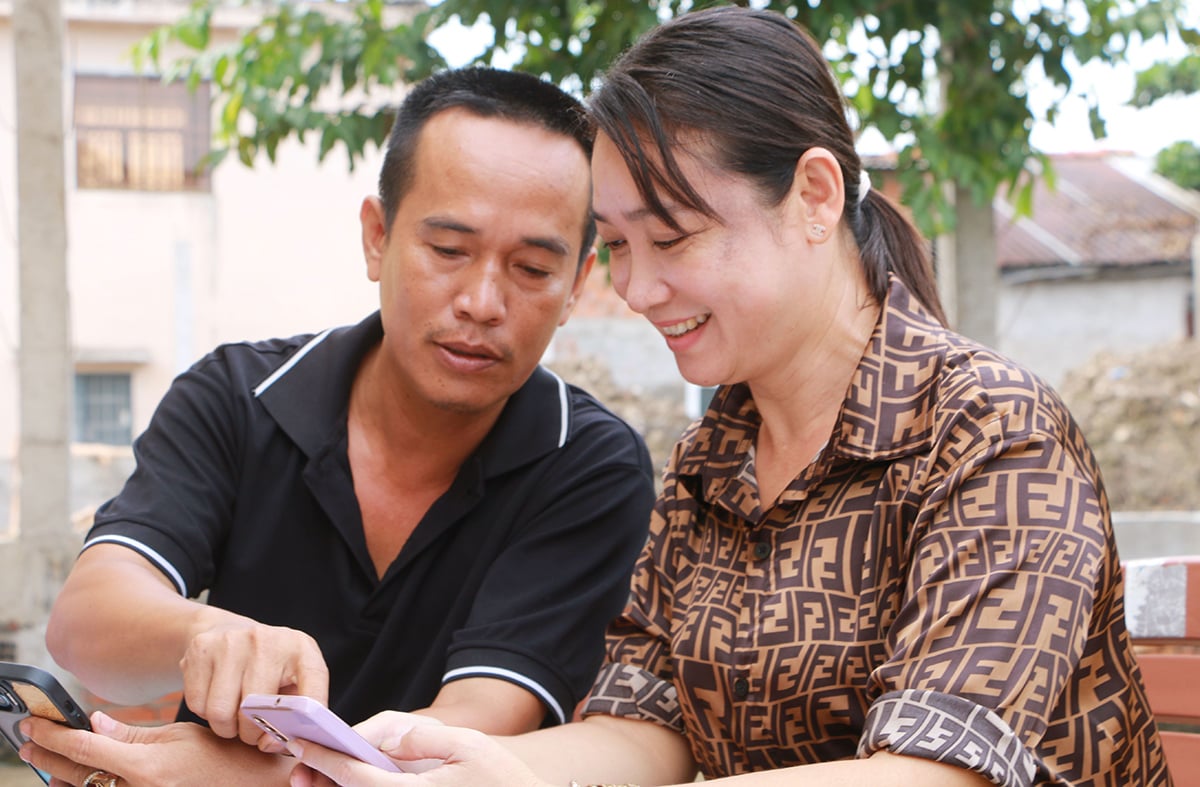
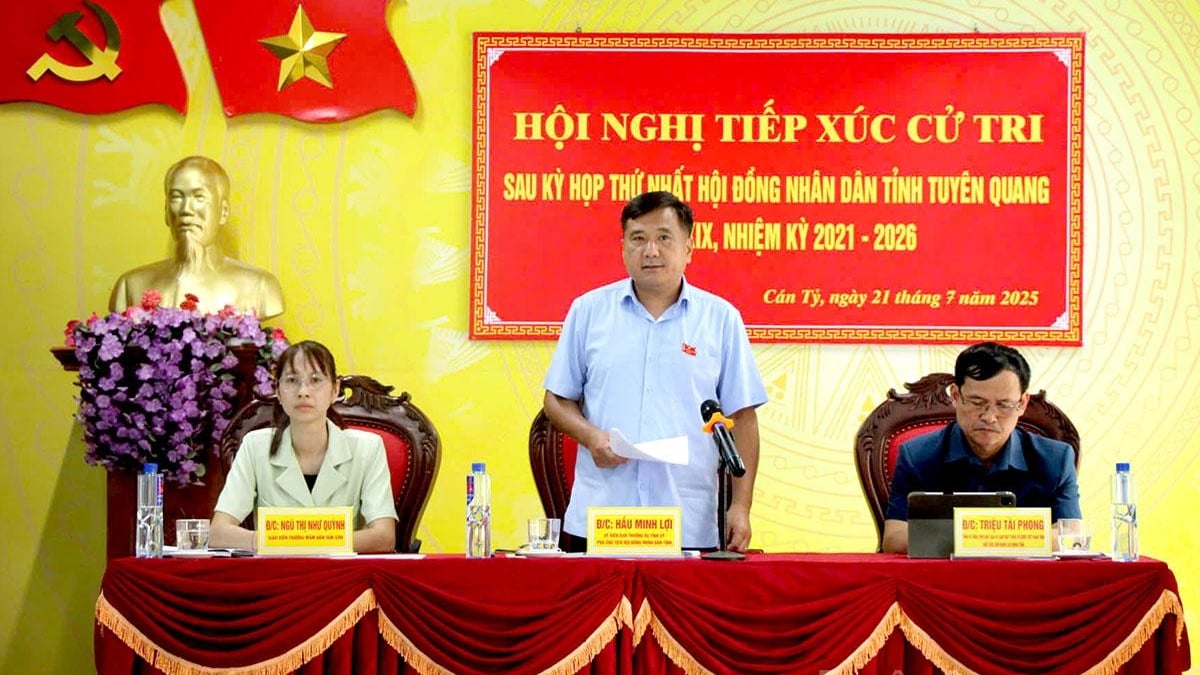





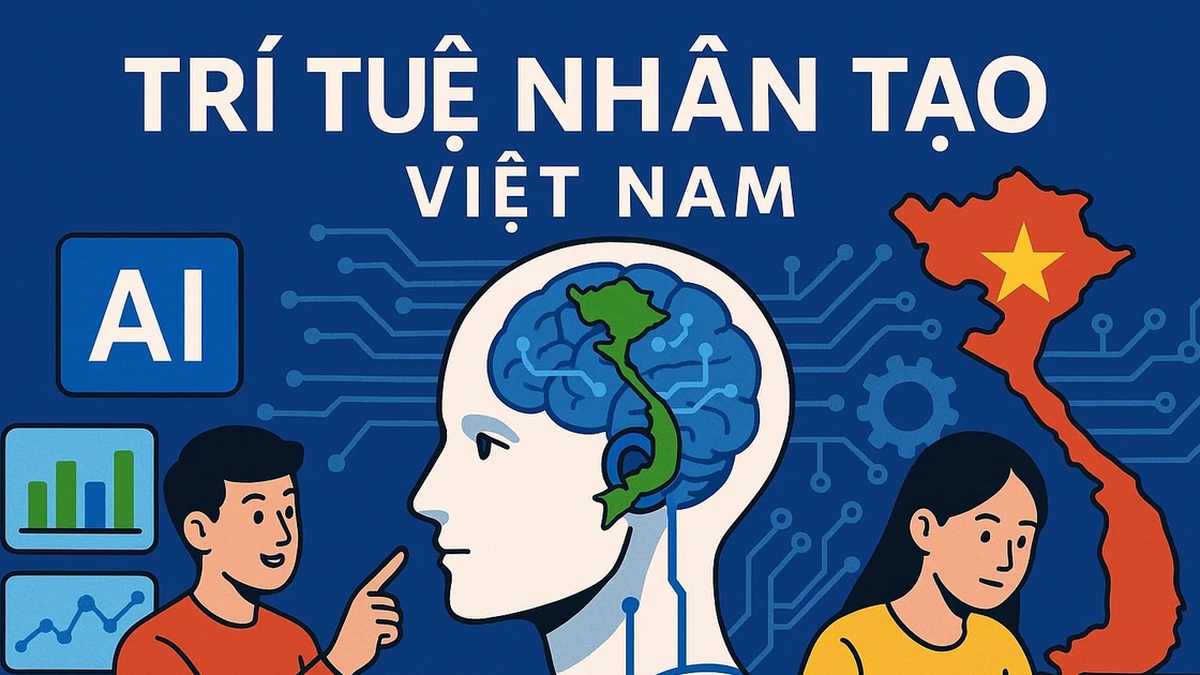
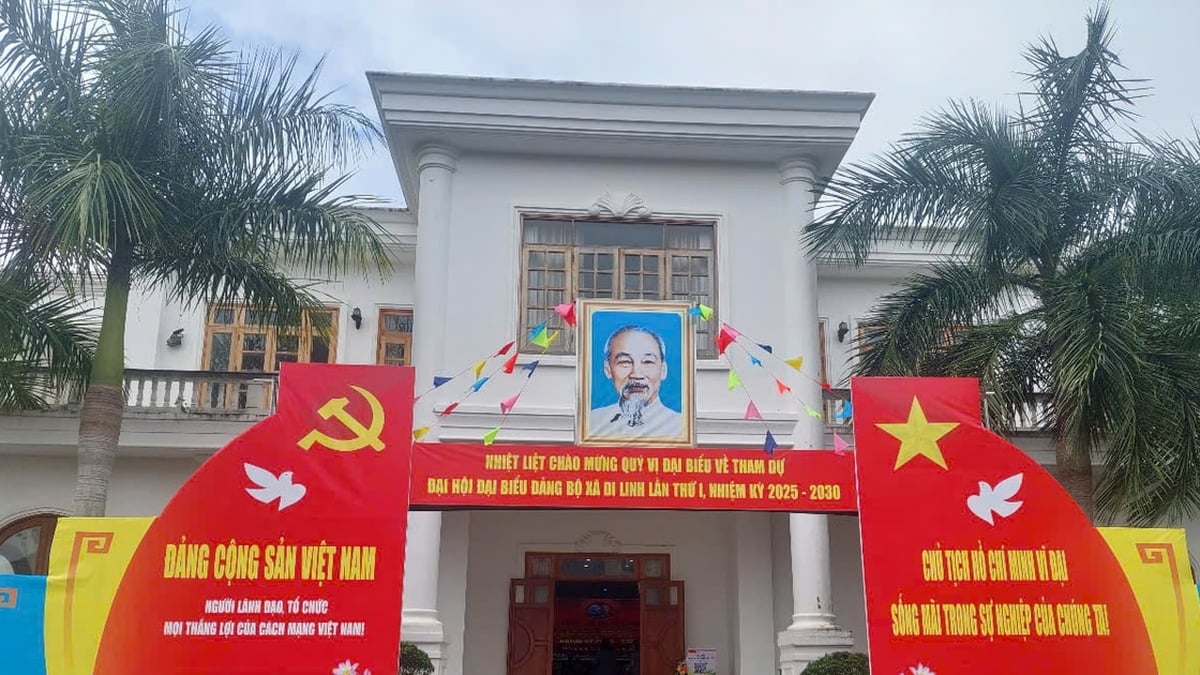













![[Photo] National Assembly Chairman Tran Thanh Man visits Vietnamese Heroic Mother Ta Thi Tran](https://vphoto.vietnam.vn/thumb/1200x675/vietnam/resource/IMAGE/2025/7/20/765c0bd057dd44ad83ab89fe0255b783)
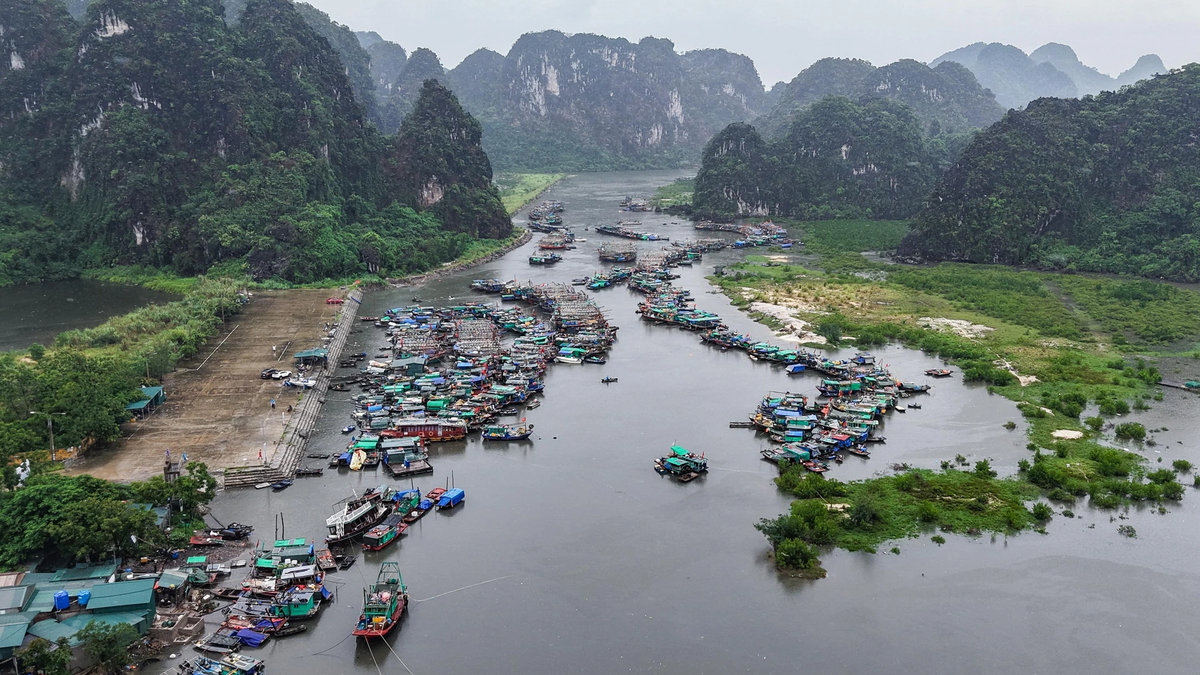











































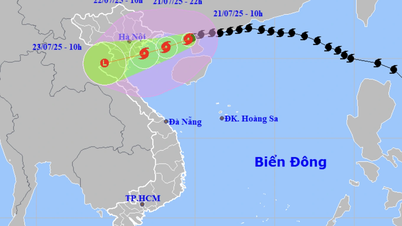



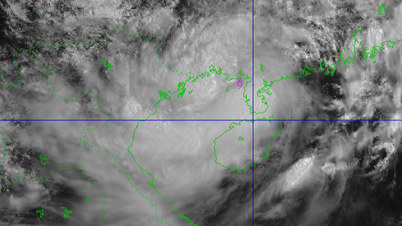




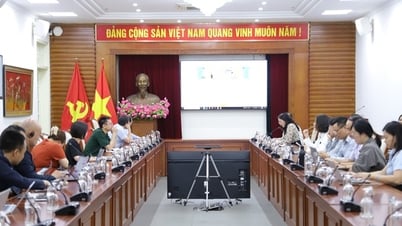
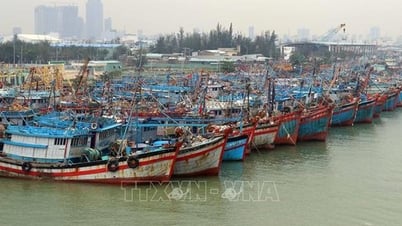























Comment (0)